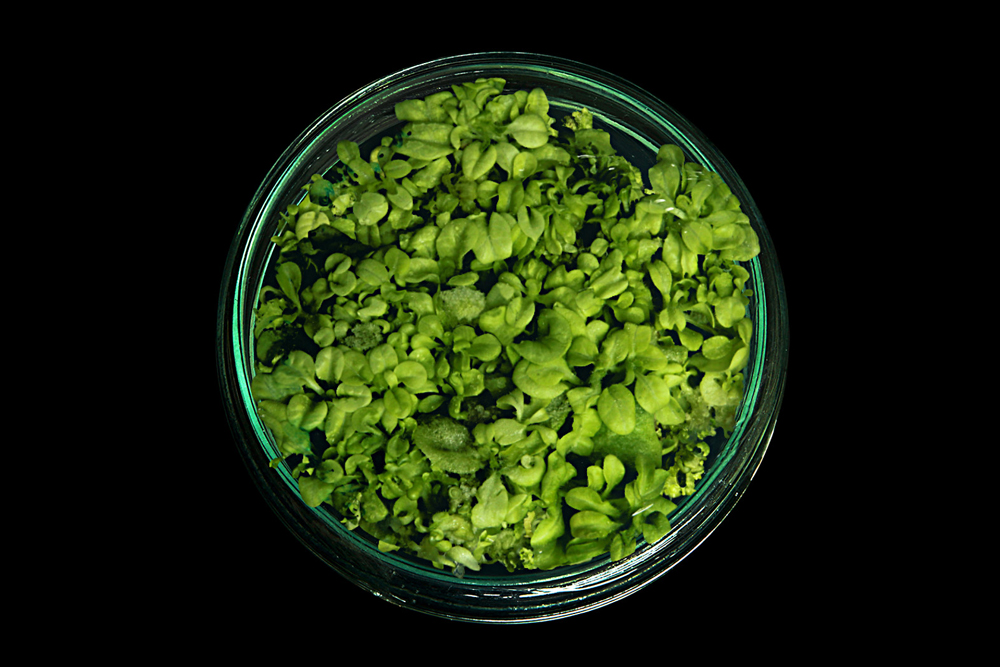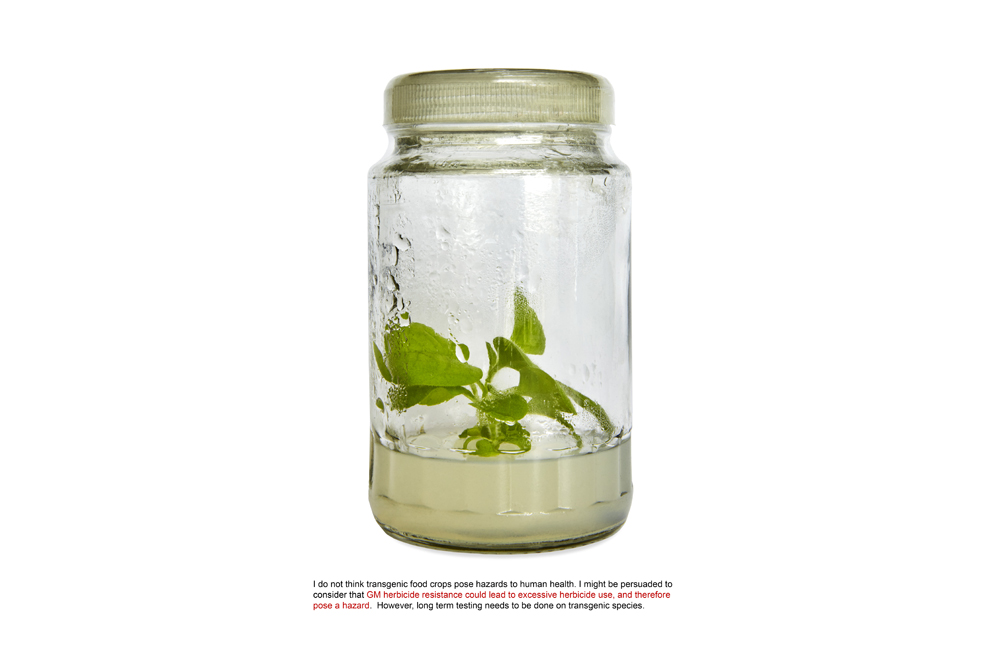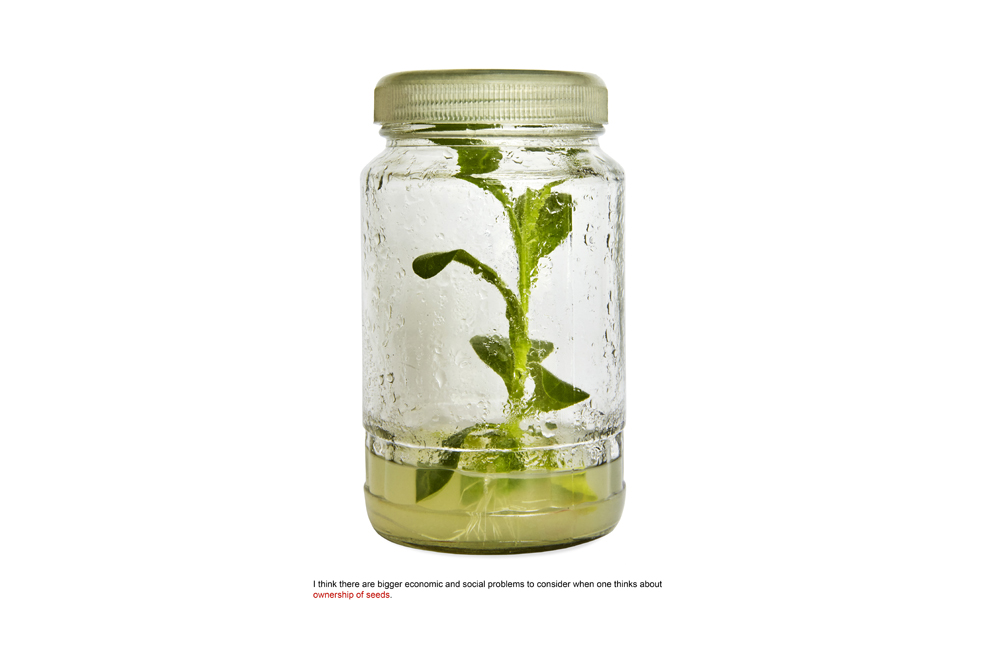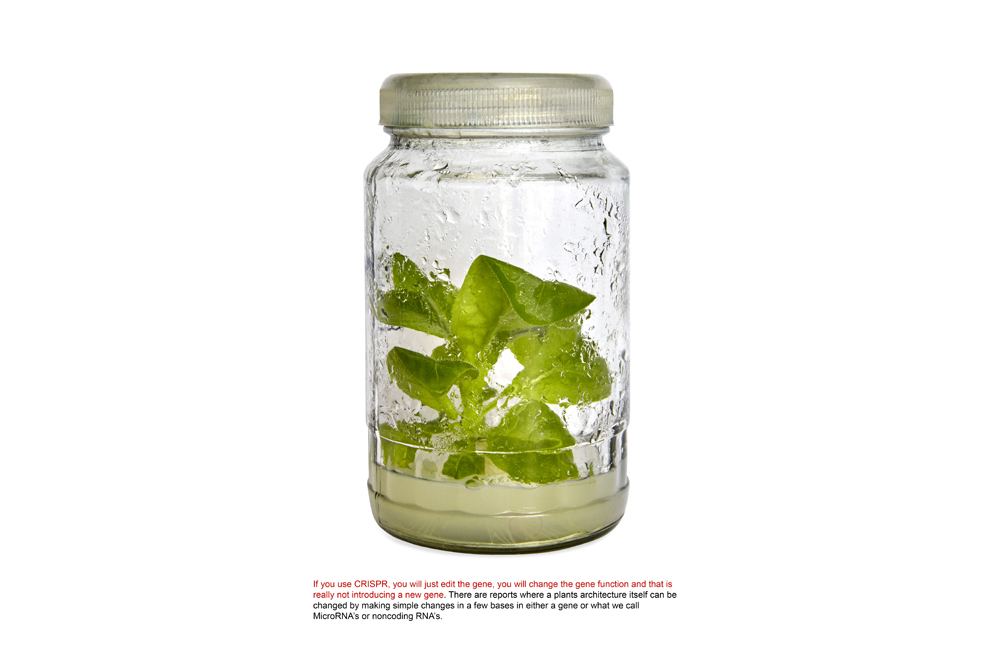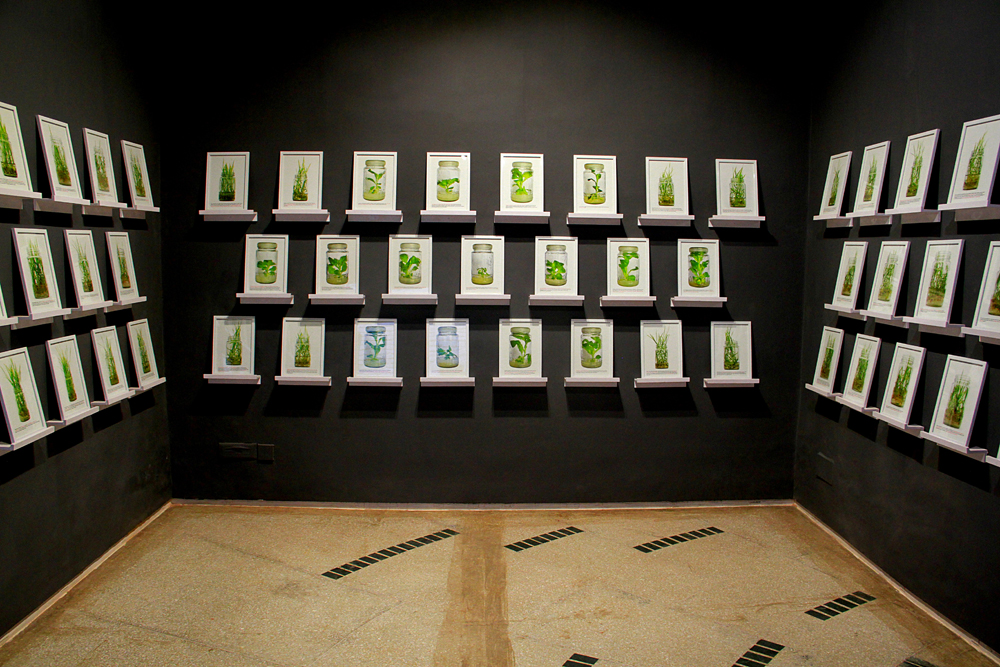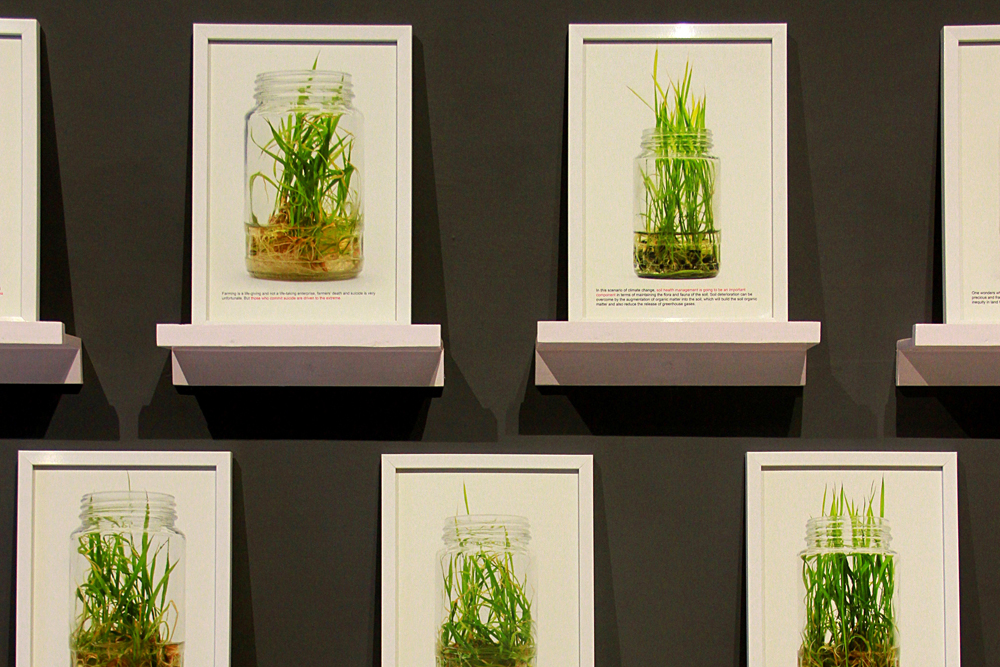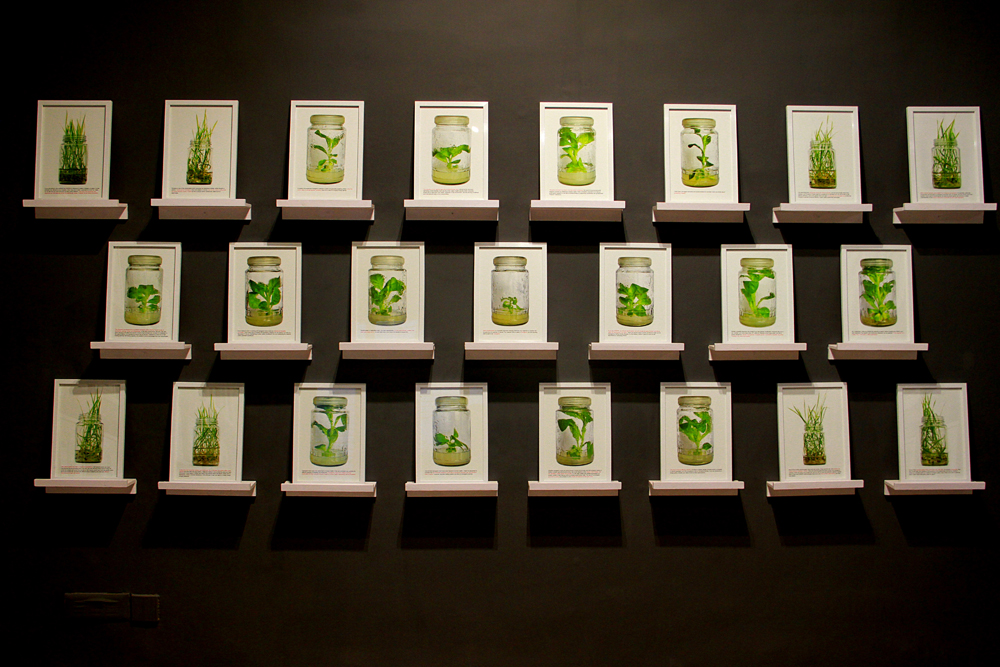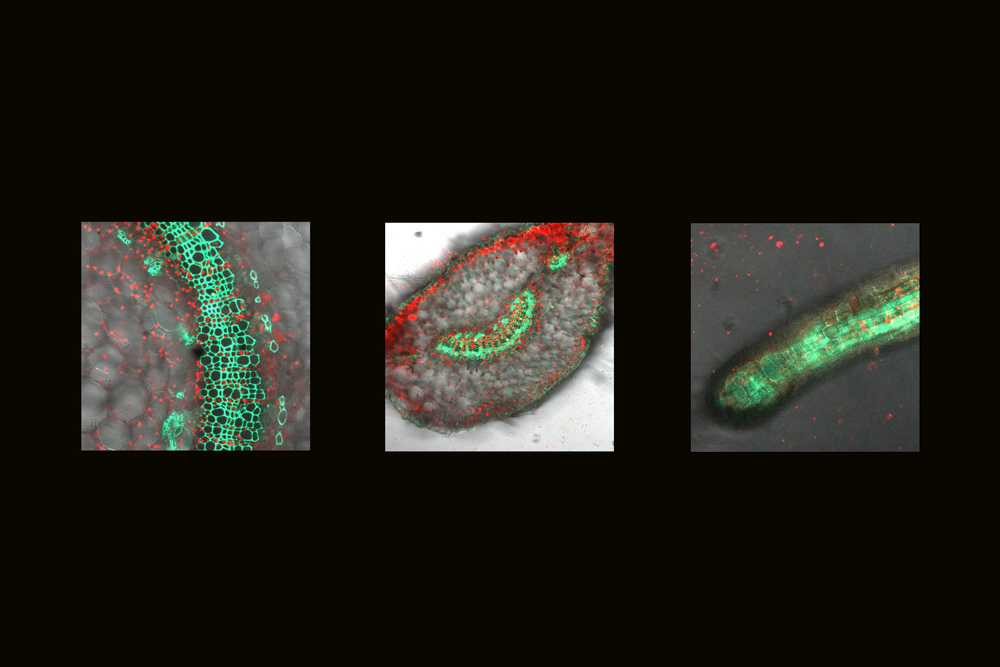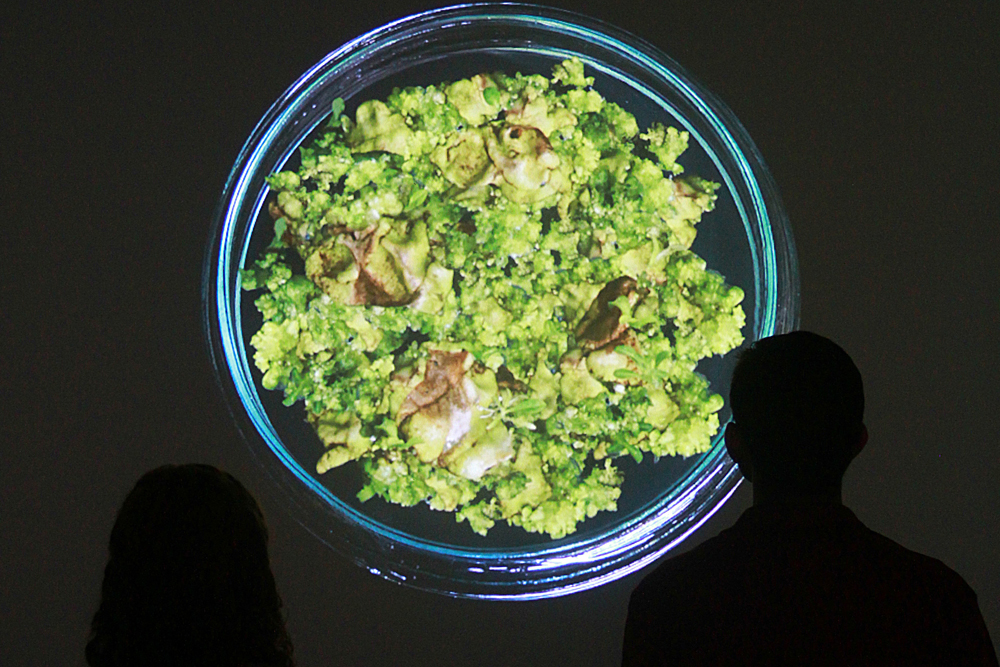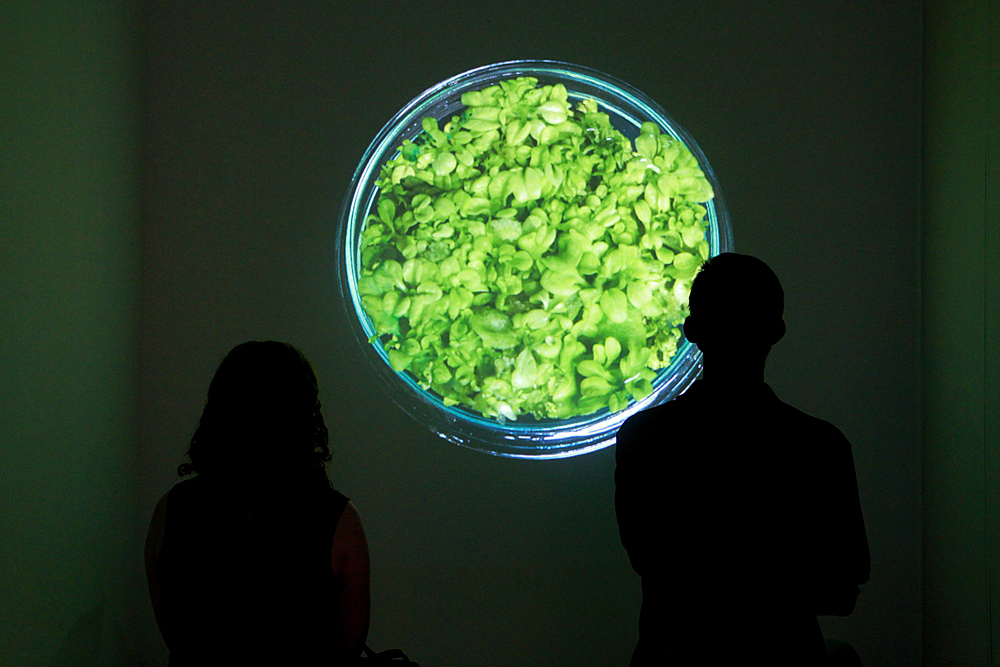THE SALT LAB
(UNDER CURRENTS) & CROSSWINDS
keywords: climate change/ salinity/ soil degradation/ fragility/ food shocks/ internal displacements/ migration/ transgenic food crops/ saline tolerant and drought resistant rice/ bio-safety/ bio-security/ food insecurity/ nutrition security/ structures of power/ inclusion & exclusion/ preservation/ conservation/ global & local ecologies.
The beginning of 21st century is marked by global scarcity of water resources, environmental pollution and increased salinization of soil and water. Soil salinity is one of the most devastating environmental stresses, which causes major reductions in cultivated land area, crop productivity and quality. It has been estimated that worldwide 20% of total cultivated and 33% of irrigated agricultural lands are afflicted by high salinity. Furthermore, the salinized areas are increasing at a rate of 10% annually for various reasons, including low precipitation, high surface evaporation, weathering of native rocks, irrigation with saline water, and poor cultural practices. It has been estimated that more than 50% of all arable land in the world would be salinized by the year 2050.
In addition, an approximate area of 7 million hectares of land is covered by saline soil in India.
Climate change brings a new urgency to understanding salt tolerance and the impact of various abiotic stresses on food crops in India. Of all the monocots, rice is the most sensitive to salinity. Rice is the world's most important staple food - grown in over 100 countries, consumed regularly by over two billion people and the primary source of protein for millions. But the production of rice is at a critical crossroad if the future biodiversity of rice and rice farmers, producers and consumers is going to be protected. In addition, fragility resulting from adverse environmental conditions linked to climate change, fundamentally alters the linkages between agriculture and nutrition outcomes. When margins are slender, vulnerability to adverse climate is magnified. Sometimes this is a chronic and steadily worsening process that encourages migration with its own consequences, or even worse consequences with catastrophic climate events. Food shocks are a part of this.
Modern biotechnology has allowed the movement of genetic material across unrelated species, something impossible with the traditional breeding methods. This intentional transfer of genetic material has in turn brought biotechnology out from the laboratory to the field. Commercial potential of biotechnology is immense since the scope of its activity covers the entire spectrum of human life. The most potent biotechnological approach is the transfer of specifically constructed gene assemblies through various techniques. However, this deliberate modification and the resulting entities thereof have become the bone of contention all over the world.
Through its various ongoing phases of research and documentation, The Salt Lab reflects on the urgency to develop salt-tolerant and drought-resistant food crops in India. The project explores both indigenous saline tolerant rice varieties in India, as well as recent developments in transgenic rice from mangrove species and halophytic species, technologies that may shape the future of food in India. The Salt Lab analyses and probes cultural, philosophical, ethical and social questions connected with scientific and technological research, all of which contest our assumptions about our relations with science, technology, and the environment. Drawing data and vital information from the fields of Biotechnology, Microbiology and Eco-technology, the artistic investigation speculates about a future where the transgenic becomes vital for human survival. While we become aware of the tools used to create new hybrid life forms through the role of genetic engineering, we perceive that to create new life forms we must work within the boundaries of ethics, biosafety and security. The body of works also indicate the strains and dichotomies between the nature of speculation, thought and action, as well as connections across and tensions between the structures of power that order inclusion and exclusion at different moments in time.
We shape and are shaped by our caretaking, consumption, manipulation of, destruction of and compassion for other beings. Human evolution is a multispecies endeavour.This process of entanglement is more pervasive and broadly distributed in the Anthropocene than ever before. Reflecting on core processes in human evolution can give us insight into what we can, will, and should do looking forward as members of global, yet very local, ecologies. Bypassing the conceptualization of the biological, social, and ecological as distinct domains of being, and thinking of them as intertwined processes of becoming, presents a powerful lens for understanding ourselves and our relationships with others in the Anthropocene.
The Salt Lab is a space for observation, speculation and contemplation that offers nodal points for artistic enquiries into the role of nature, the purpose, preservation & conservation of life, and the role of humankind as 'makers'.
'The life of the planet is green...
Is not a matter of preserving plants: plants will survive. The conservation implications are for humans: fragile and dependent organisms.' (Stefano Mancuso)
 |
|
With special thanks
Dr. Prof. M S Swaminathan, Dr Sarah Hyder Iqbal, Dr. V Selvam, Dr. Gayatri Venkataraman, Dr. Prabhavathy, Dr. Anura Kurpad, Dr. Banalata Sen, Dr. Pooja Khandelwal, Dr Rukmani.
Institutions:
Khoj International Artists Association, Wellcome Trust UK/DBT India Alliance,
M S Swaminathan Research Foundation, India, Public Health Foundation of India
St John's Medical College, Bangalore, India.
Works
http://www.aestheticamagazine.com/yin
|
|

















